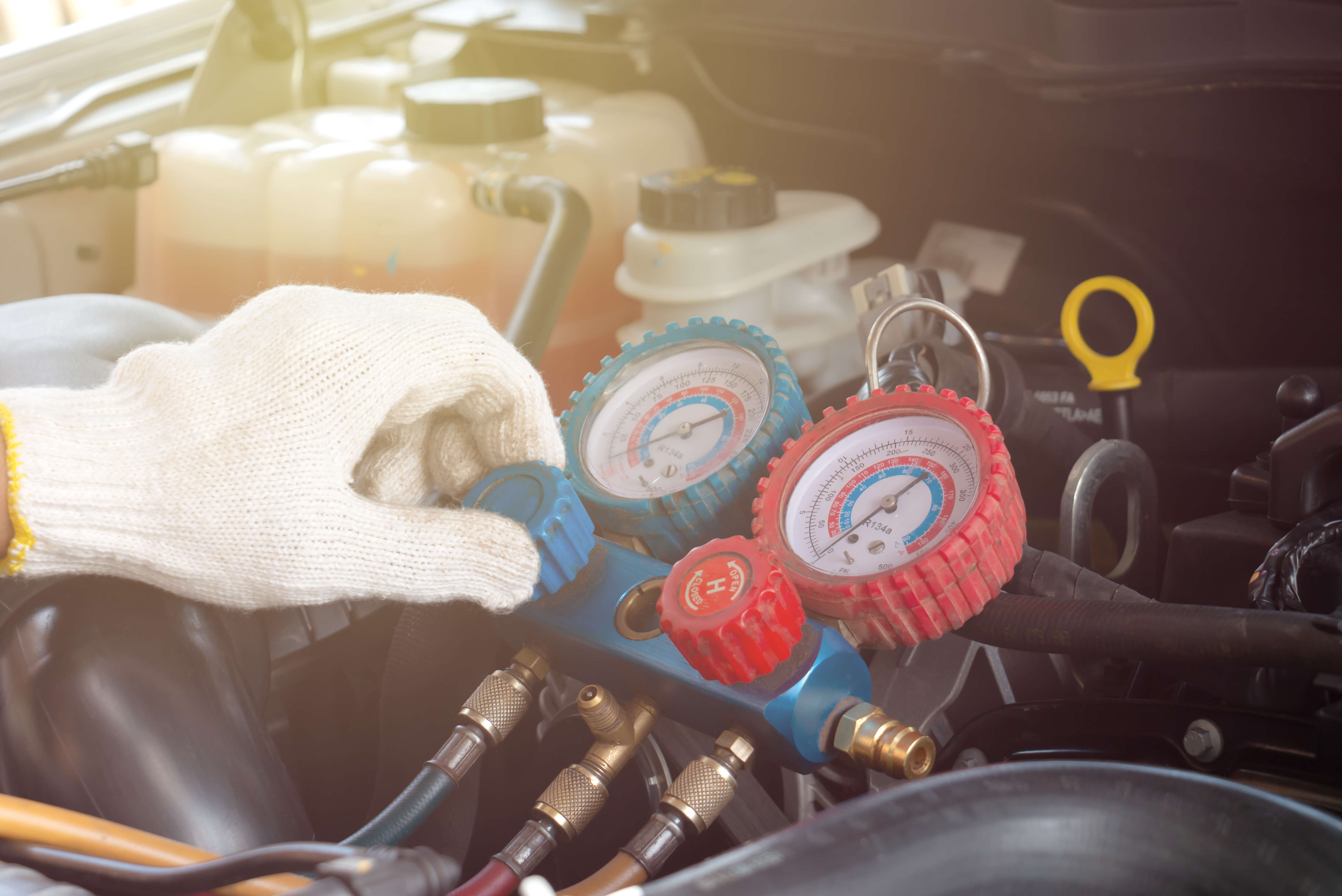How Often Do I Need To Recharge My Car Ac

Understanding the health of your car's air conditioning (AC) system is crucial for comfortable driving, especially during hot weather. One common question that arises is: how often does my car AC need to be recharged? The answer, unfortunately, isn't a simple one-size-fits-all. Several factors influence how frequently you need to replenish the refrigerant in your system.
What is AC Recharge and Why is it Necessary?
An AC recharge, also known as an AC regas, involves replenishing the refrigerant in your car's AC system. This refrigerant, typically R-134a or the newer R-1234yf, is essential for the cooling process. The AC system works on a closed-loop principle: the refrigerant absorbs heat inside the cabin, transfers it to the condenser (usually located in front of the radiator), and then cycles back into the cabin to repeat the process. Over time, leaks, however small, can lead to refrigerant loss, reducing the system's efficiency and cooling capacity.
Unlike oil changes or tire rotations with specific mileage-based intervals, AC recharges are typically performed based on performance degradation rather than a set schedule. A properly functioning AC system shouldn't require frequent recharges.
Factors Affecting AC Recharge Frequency
Several factors can impact how often you need to recharge your car's AC:
- Leaks: This is the most common reason for refrigerant loss. Even minuscule leaks in hoses, seals, fittings, or the compressor can slowly deplete the refrigerant. Older vehicles are generally more prone to leaks due to wear and tear on rubber components. UV dye leak detection is a common method technicians use to pinpoint these leaks.
- Age of the Vehicle: As vehicles age, the rubber seals and hoses in the AC system become brittle and prone to cracking. This naturally leads to a higher likelihood of leaks and the need for more frequent recharges.
- Climate: If you live in a hot climate and frequently use your AC, the system works harder, potentially accelerating wear and tear and increasing the chance of refrigerant loss.
- System Usage: Regularly using your AC, even in cooler months, helps lubricate the internal components and keeps the seals pliable, potentially preventing leaks. Conversely, infrequent use can allow seals to dry out and crack.
- Damage: Physical damage to the condenser (from road debris, for example) or other components can cause significant refrigerant leaks, requiring immediate repair and recharge.
- Component Failure: A failing compressor, expansion valve, or evaporator can indirectly contribute to refrigerant loss, even if they aren't directly leaking themselves. A failing compressor, for example, may put excessive strain on other components, leading to leaks elsewhere.
Signs Your Car AC Needs a Recharge
Instead of adhering to a rigid schedule, look for these telltale signs that your AC system may need attention:
- Weak Airflow: If the air blowing from the vents is weak, even when the fan is set to high, it could indicate a low refrigerant level.
- Warm Air: This is the most obvious sign. If the air coming from the vents isn't as cold as it used to be, or if it's barely cooler than the ambient temperature, a recharge is likely necessary.
- Strange Noises: Unusual hissing or gurgling sounds coming from the AC system can indicate low refrigerant or a leak. These noises are often associated with the compressor struggling to operate with insufficient refrigerant.
- Clutch Issues: The AC compressor clutch engages and disengages to activate the compressor. If the clutch is failing or not engaging properly due to low refrigerant pressure, the AC won't cool effectively.
- Visible Leaks: While less common, you might spot oily residue near AC components, especially around connections. This residue is often the lubricant mixed with the refrigerant leaking from the system.
How Often Should You *Actually* Recharge?
In most cases, a well-maintained AC system should last several years without needing a recharge. However, if you experience any of the symptoms listed above, it's best to have a qualified mechanic inspect the system. Some vehicles may go 5-7 years (or even longer) before needing a top-up, while others, particularly older vehicles or those with known leak issues, might require more frequent attention. A responsible approach is to have the system checked annually, especially before the summer months, to ensure optimal performance. Remember, simply recharging the system without addressing the underlying cause of the refrigerant loss is only a temporary fix.
Ultimately, there isn't a definitive answer to how often you need to recharge your car's AC. By understanding the factors that influence refrigerant loss and being vigilant for the warning signs, you can ensure your AC system stays in top condition and avoid costly repairs down the road. Always consult with a qualified mechanic for diagnosis and repair.
